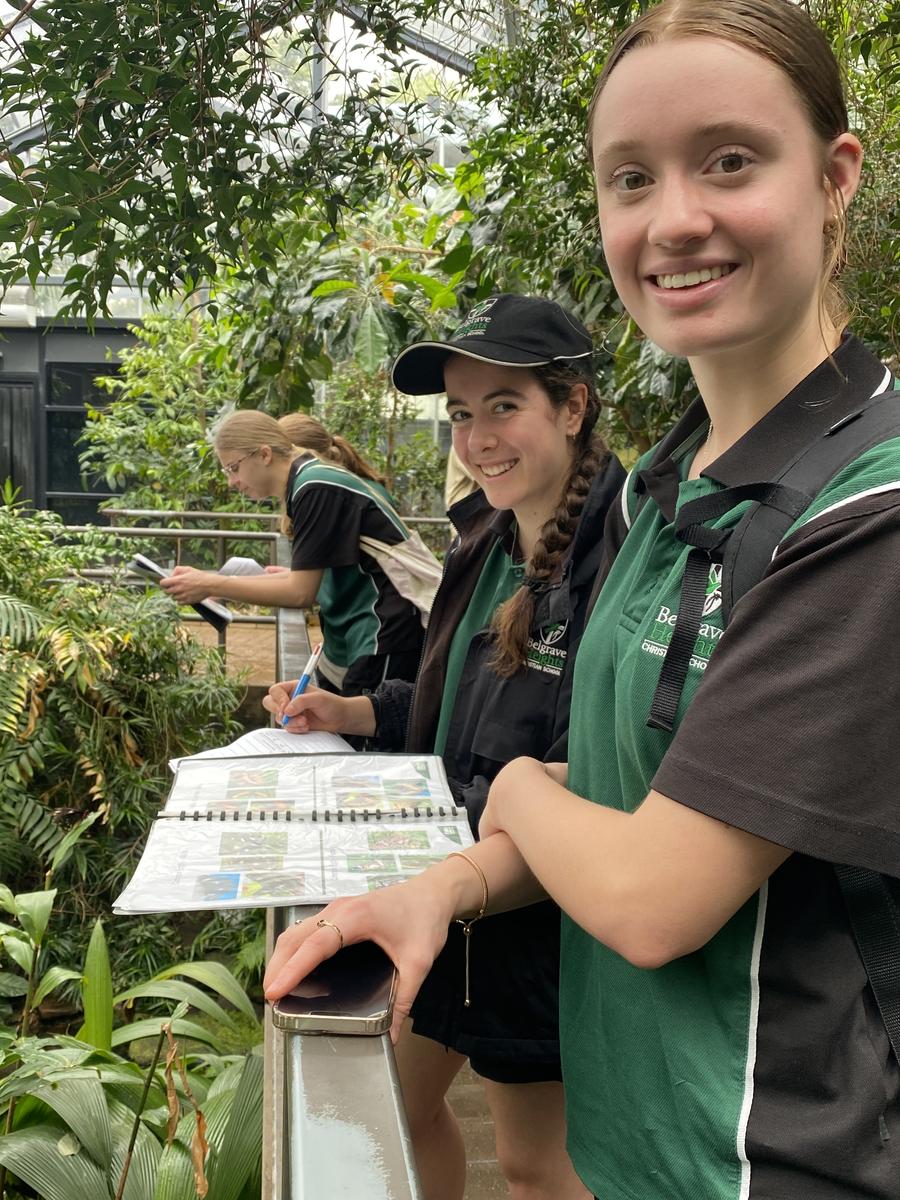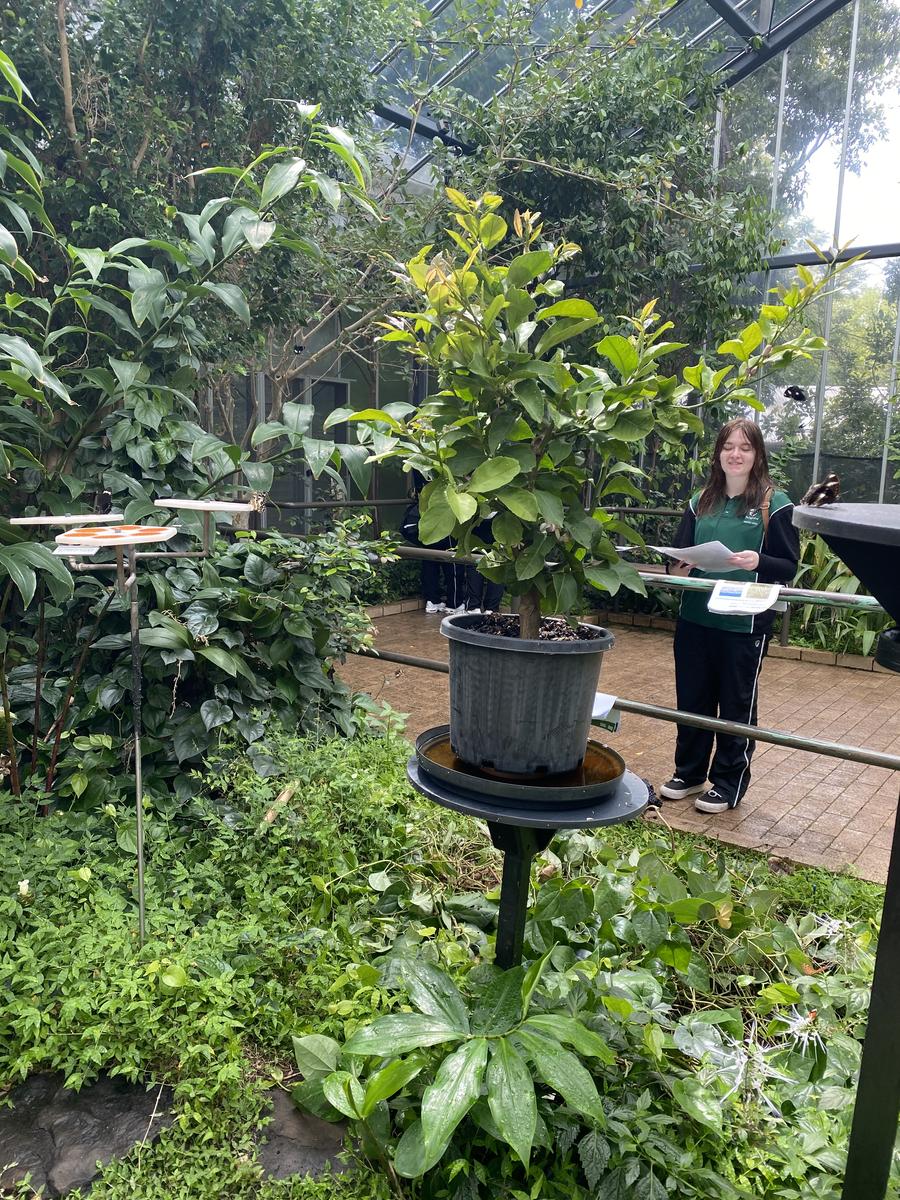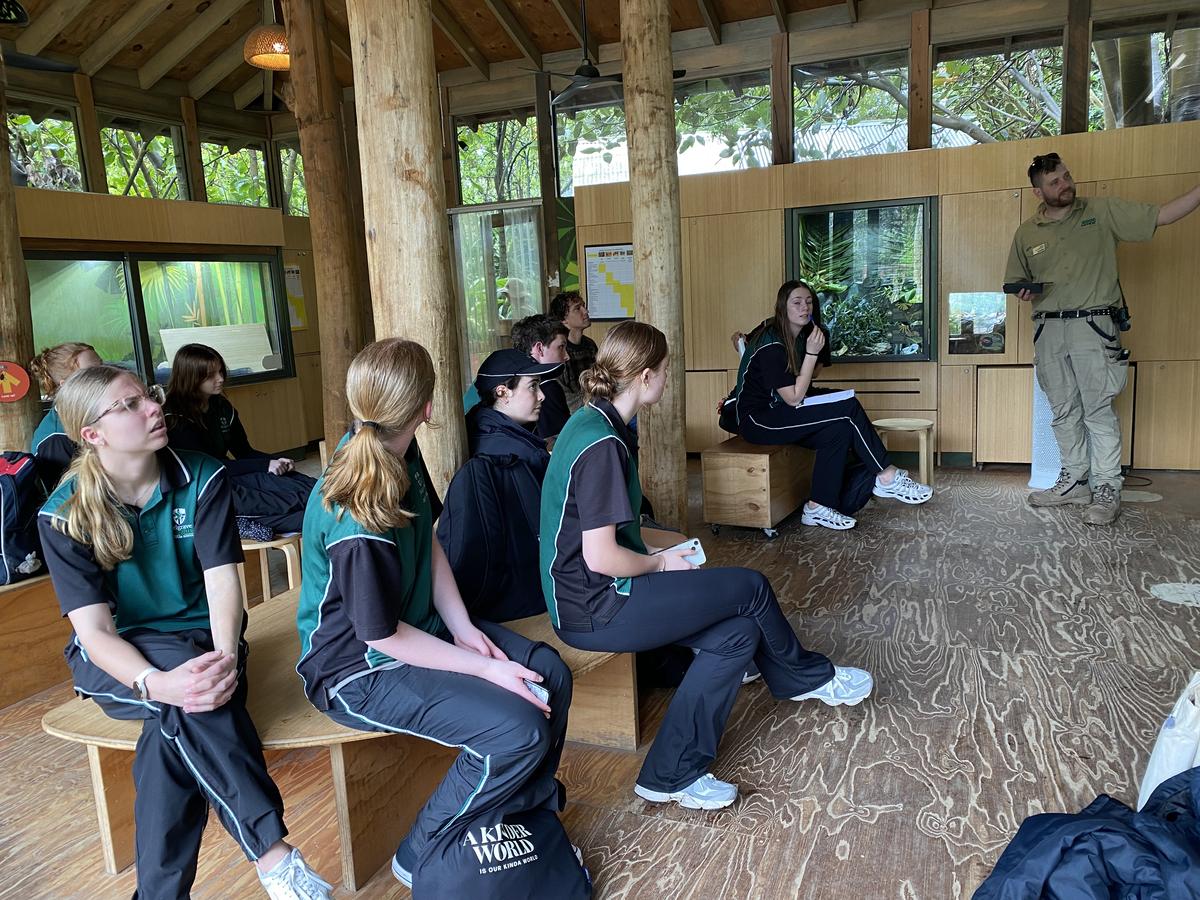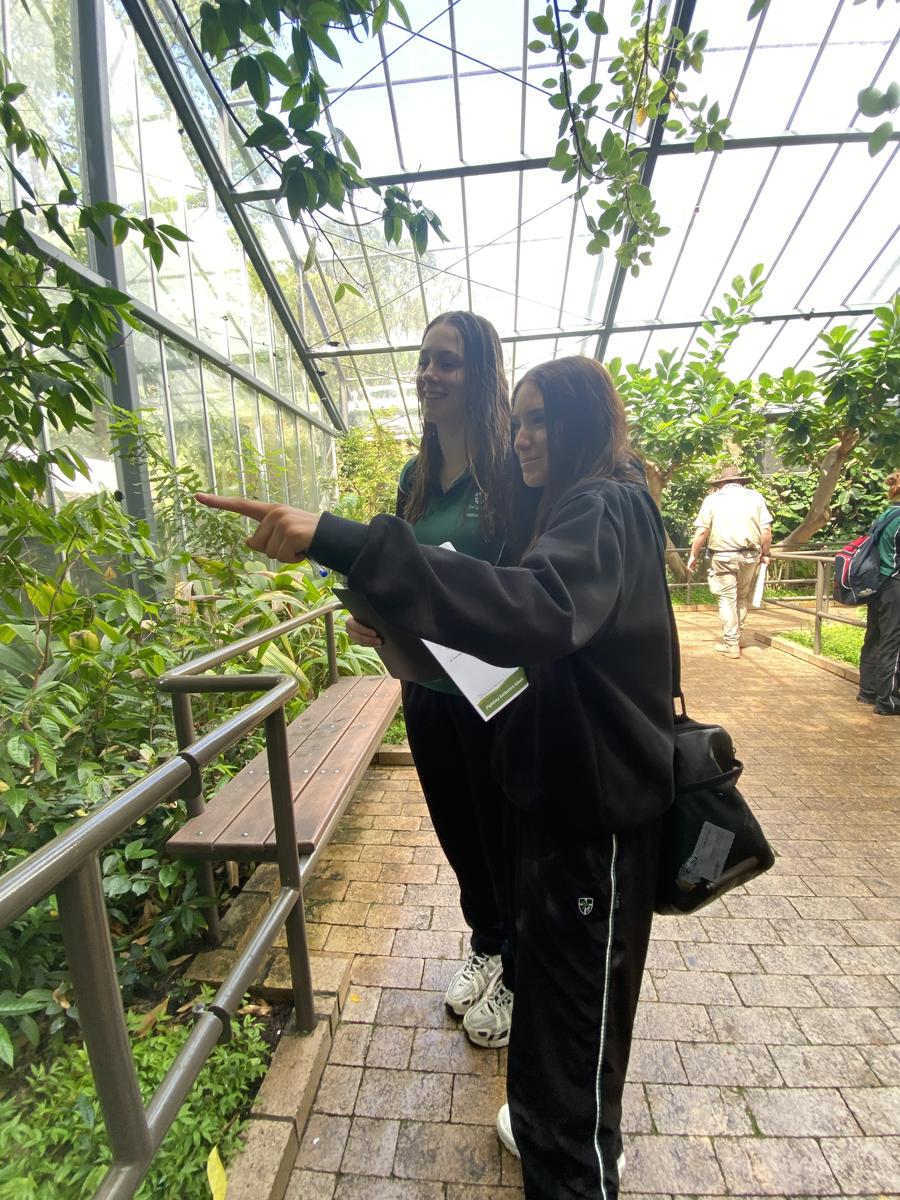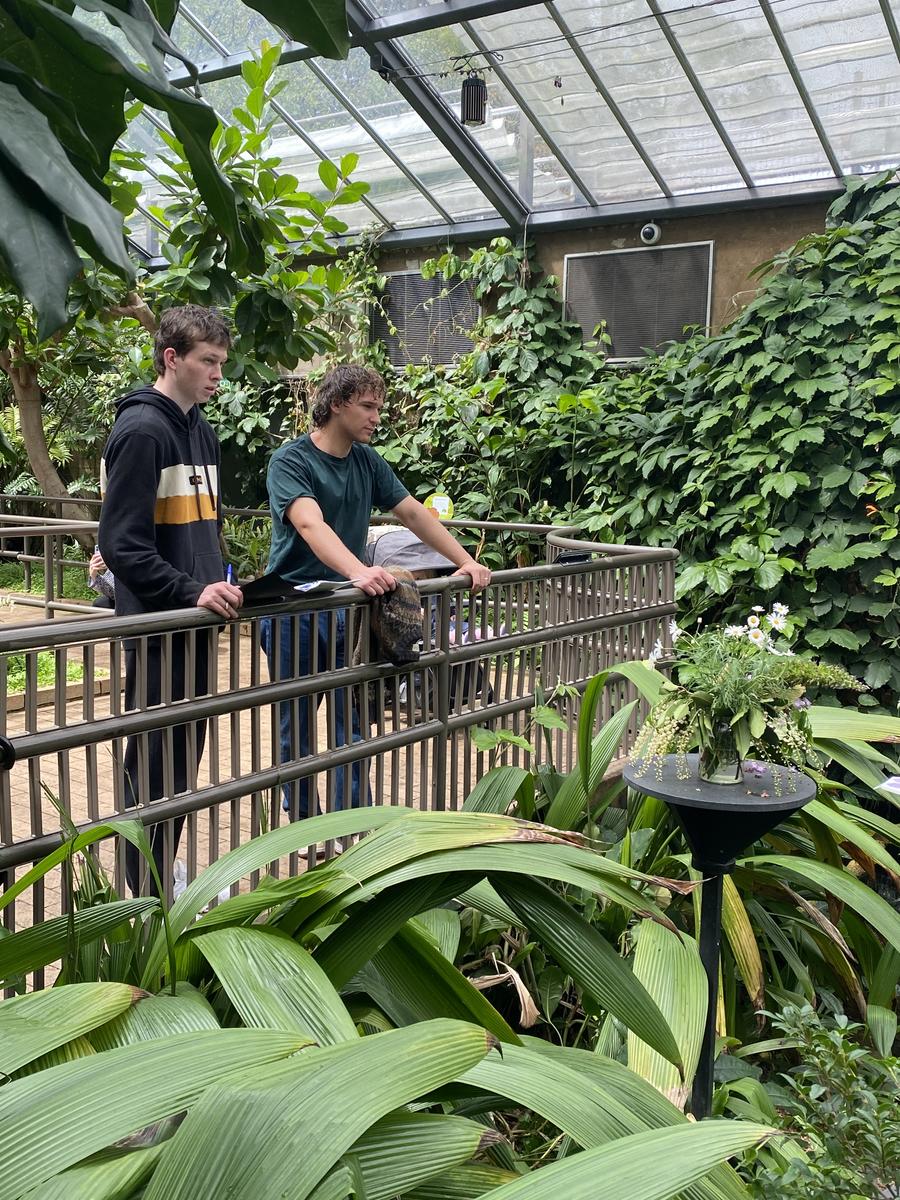FIGHTING EXTINCTION: OUR ZOO EXCURSION EXPERIENCE
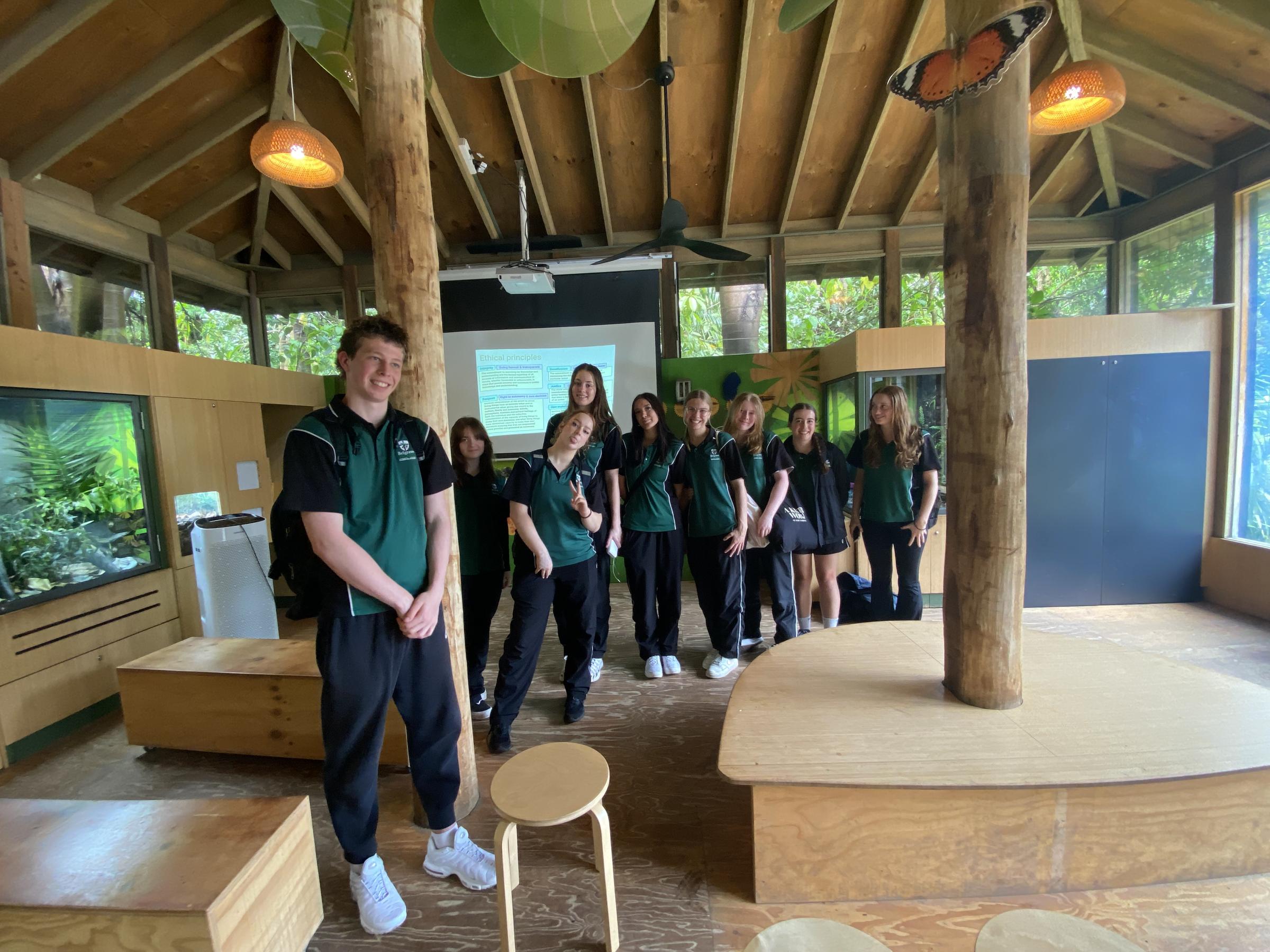
By Annie Rajulu (Secondary Teacher)
Our recent excursion to the Melbourne Zoo with the Year 11 Biology students was not just any ordinary field trip—it was an eye-opening experience into the world of animal conservation. Despite the heavy rain that left most of us soaked to the skin, our students showed great resilience, embracing the opportunity without a single complaint. The wet weather didn’t dampen their enthusiasm; in fact, it made the adventure even more memorable.
The day began with a program focused on fighting extinction, where students were immersed in the challenges of conserving our native wildlife. The program took a real-world approach to learning about animal adaptations and the strategies needed to save endangered species. As part of the session, students explored various animal adaptations, understanding how they help species survive in their natural habitats and the threats they face in the wild.
One highlight of the program was learning about the Southern Corroboree Frog, a critically endangered species. The students discovered the structural, physiological, and behavioural adaptations that make this tiny frog unique. They also learned about the serious threats it faces, including a devastating global fungal infection, and how Zoos Victoria is involved in captive breeding programs aimed at boosting its population. This topic even sparked thought-provoking discussions about the bioethics behind such conservation efforts.
The experience didn’t stop there. Our budding scientists put their inquiry skills to the test by collecting and analysing data on butterfly behaviours at the Melbourne Zoo Butterfly House. This hands-on activity allowed students to apply their scientific knowledge and skills in a practical setting, deepening their understanding of the interdependence of species within an ecosystem.
The excursion wasn’t all about formal programs, though. Students had time to explore other exhibits and observe the zoo's diverse inhabitants. They enjoyed watching zookeepers in action and learning more about the animals through keeper talks, which added an extra layer of richness to the day.
Overall, the Fighting Extinction excursion was a valuable and enriching experience. Students came away with a deeper understanding of how structural, behavioural, and physiological adaptations contribute to species survival, the intricacies of ecosystems, and the essential role of conservation efforts. More importantly, they learned that despite challenges, such as the rain, we can all play a part in making a difference for our wildlife.

